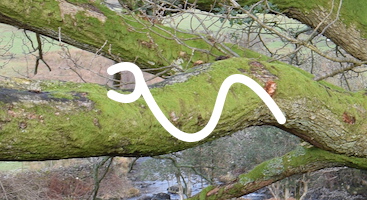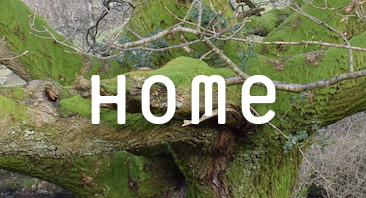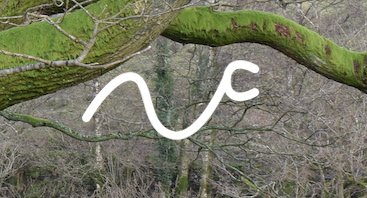Anthony John reviews Phenomenology of the Feral and Miscellaneous by Julia Rose Lewis
Julia Rose Lewis lives in London and Nantucket in the US. She works and studies in Cardiff where she is researching the relationship between poetry and the philosophy of science. She has published books and pamphlets, including Phenomenology of the Feral (Knives Forks and Spoons Press 2017) and Miscellaneous (Sampson Low 2019), which are the focus of this review, How to Hypnotize a Lobster (Fathom Books 2018), Strays (Haverthorn Press 2017, a collaboration with James Miller), Exhalation Halves Lamda (Finishing Line Press 2017) and a 2016 pamphlet from Zarf Editions, Zeroing Event, that is reprinted as the first section of Phenomenology. She has published in many magazines including Poetry Wales, Amberflora and The Learned Pig and she won Fathom Books’ Pitch Viper Prize in 2017.
Refrigerators, pears, eggs, corn, Iowa, horses and dogs chase each other like white rabbits through the four sections of Phenomenology of the Feral. Like the poetry itself, they are propelled by an unselfconscious logic. As these motifs repeatedly disappear and appear, their usual meanings become ever more detached. The poet says this repetition ‘creates a familiarity for the reader as they move through the text.’
The collection was started in 2015 and many of the poems are explicitly autobiographical. ‘My poetry is always in response to something that has happened’, the poet says. ‘I do think of each poem as a fragment a part of a larger conversation between me and my ideal reader. The poems are written towards a particular reader and everyone else is simply eavesdropping on the conversation.’
The book is dedicated to the late Dr Paul Grobstein, a US neurobiologist and ‘the man who taught me how to tell the difference between a frog and a toad’. The poet explains his presence is related to Marianne Moore’s famous quote about poetry being ‘imaginary gardens with real toads in them'; an inside joke, as frogs were part of his research. The poet says, ‘I would happily describe my work as applied neurobiology.’ Dr Grobstein pops up suddenly throughout the collection. As one title puts it, ‘When in Doubt, Throw Grobstein on the Table’.
Science is a strong influence on the poems: you are initiated into the virtues of RNA over DNA and the ‘kink-turn motif’ of ribonucleic acid. There are sudden changes of scale from the everyday to the molecular level. Other poems are playful. One advises: ‘Always replace the word vegetable with festival’, and later ‘The cranberry festival not vegetable comes.’
Gertrude Stein would nod in approval at some of the lines. ‘Southern corn muffins are savoury and ivory’, and ‘Is a maraschino cherry, so much more cheery than a cherry gummy bear?’ (The final section of the book is devoted to gummy bears.) Poems attempt to reason out their own meaning. ‘If Paul Grobstein was the white rabbit and I am silver, then what does this dream mean? In the silver kitchen there should be a silver scaled fish …’
The third and possibly best section of the book immerses you in slippery language with an octopus as your companion. ‘Should an octopus be encouraged to juice an orange?’ asks one poem. Another: ‘Not seen: octopus holding a potato, because depression is a brussels sprout or the eye of a potato?’ The octopus is soft and sticky compared to ‘burnt sugar brittle and brown’. A squid appears, and there’s Grobstein again too.
In amongst all this, suddenly you are hit with a poem of such fragility and beauty, love and friendship it takes your breath away. Reading ‘Maid of Refrigerators’ (in full below), and the poem that follows it, you could believe the epitaph quoted from James Galvin that ’all poems are love poems’.
Maid of Refrigerators
In the beginning,
was a big white doily-like
thing/dress. We held hands.
Brush to London poetry
of corn yellow and
off-white, the black dress I wear.
Watch something wilder
than Iowa; I tell her
the story of the
abstract refrigerator.
Bride, maid of honour:
bliss is she will wear the blush
not white dress and I
the blue. To dust the black shiny
bits of their kitchen.
The found refrigerator
is her reflection.
Julia Rose Lewis’s recent pamphlet Miscellaneous took four years to write. It is made of twelve untitled poems of twelve lines each. Here is one of them:
I do not like musk oxen
simple as I am.
Should you? Should you harness them
a horse-less carriage?
Take them! Take the musk oxen!
I am sighing. I
should not, should not harness them
a horse-less carriage.
You may like the musk oxen
man. The bearded one
will soon be known, you may like
the musk oxen near the sea?
This complaint against musk oxen seems simple enough. Or is it a complaint against the musk oxen? Is there a difference? So should the musk oxen be harnessed a horse-less carriage or should they not? Is this an interior monologue or a dialogue? Is the ‘I’ of the first and second lines the ‘I’ of the sixth, or if the ‘I’ of the sixth is the ‘you’ of the third then who is the ‘you’ of the eleventh?
Is it that the ‘horse-less carriage’ both should and should not be harnessed the musk oxen - because of course whether the musk oxen is or is not harnessed the horse-less carriage, the horse-less carriage remains a horse-less carriage, since a musk ox is not a horse.
Even though the matter had seemed definitively settled in the first line, the poem obsessively returns to the question of liking the musk oxen. The flourish at the end, that question mark, is the masterstroke. It curves the poem back on itself, as if the confident assertion of the first line could be qualified if the musk oxen were beside the sea?
The more you read Julia Rose Lewis’s enigmatic poems, the more complex they become. The relations between the words change as the words are repeated or are ordered differently, and new meanings are brought forth. But each meaning is accompanied by a new ambiguity as well as clarity. You find yourself falling a vertiginous distance.





